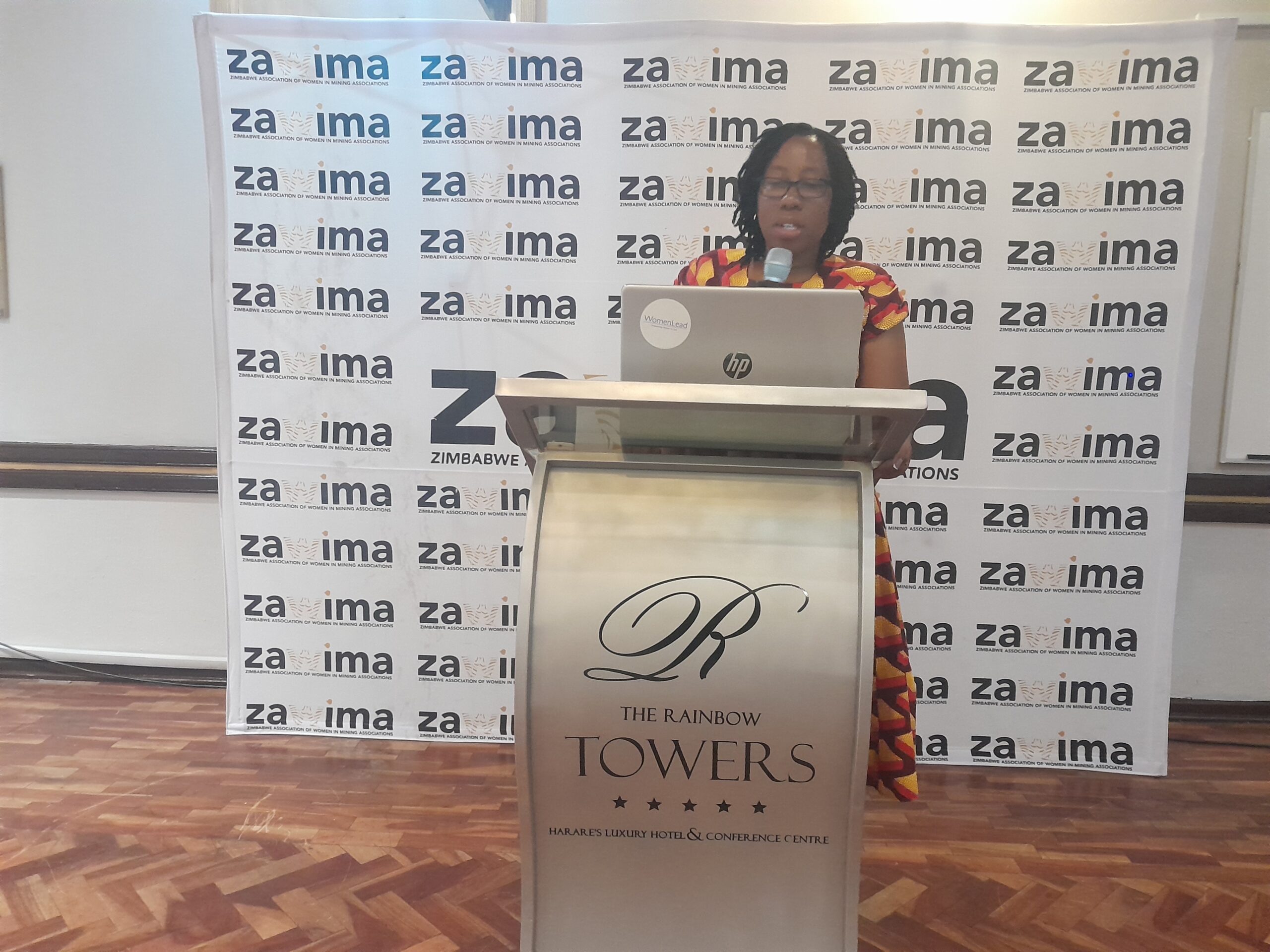The Zimbabwe Association of Women in Mining Associations (ZAWIMA) is spearheading efforts to address the pressing health and safety challenges faced by women in the mining sector. As more women take up roles within the industry, ZAWIMA is calling for immediate and targeted reforms to ensure the unique health and safety needs of women miners are met, Mining Zimbabwe reports.
By Rudairo Mapuranga
Kundai Chikonzo, Chairperson of ZAWIMA, delivered a powerful opening address at the inaugural Women in Extractives and Development Symposium 2024, setting the stage for critical discussions on “Improving Safety, Health, and Development for Women and Girls in the Mining Value Chain.” Chikonzo highlighted systemic issues faced by women and called for comprehensive solutions to improve their working conditions and overall well-being within the mining industry.
According to Chikonzo, there is a need for gender-specific health and safety measures, including access to safe working conditions, improved occupational health standards, and gender-sensitive health services. She emphasized the importance of health impact assessments tailored to the realities of women in mining, ensuring these assessments are inclusive and reflect the specific needs of women in remote mining areas.
“We must conduct health assessments with a gender-sensitive approach, ensuring that the most vulnerable are not left behind,” Chikonzo urged during her speech.
Another critical topic at the symposium was access to affordable healthcare in remote mining regions, where women often face barriers to basic health services, including reproductive, maternal, and mental health support.
Chikonzo called on stakeholders to recognize gaps in healthcare provisions, highlighting that these gaps disproportionately affect women miners and their families.
She also raised the issue of gender-based violence (GBV) in mining communities, particularly in light of the 16 Days of Activism Against Gender-Based Violence.
“How are health and safety regulations enforced to prevent gender-based discrimination in mining? Are national health policies truly integrating gender considerations?” she asked.
These pressing questions aimed to hold both policymakers and industry players accountable for the well-being of women in mining.
Sanitation in the mining sector was another critical issue Chikonzo addressed. The lack of adequate sanitation facilities for women has severe consequences for their health and dignity. “Most of the toilets aren’t used by women,” Chikonzo pointed out, emphasizing the dire need for better facilities. She explained that without access to proper sanitation, the health of mining communities, particularly women, is at risk, and called on inspectors to go beyond surface-level checks and focus on meaningful improvements in working conditions.
ZAWIMA’s Women in Mining Development Programme seeks to identify and address gaps in health and safety policies by developing actionable solutions and strengthening partnerships that support the well-being of women in mining. The organization’s focus on prevention, support, and accountability mechanisms is seen as a critical step toward creating a safer, healthier, and more equitable mining industry for women. “Together, we must work toward a safer, healthier, and more equitable mining industry for women,” Chikonzo declared, reinforcing the need for collaborative action.
The symposium provided a platform for experts, policymakers, and industry stakeholders to exchange ideas, discuss ongoing challenges, and develop strategies to improve the health and safety of women working in the mining sector. By championing these critical issues, ZAWIMA is empowering women miners and contributing to the sustainable development of the mining sector. Chikonzo concluded with a call for sustained efforts: “Let’s break down the barriers to women’s participation in mining and ensure safe, fair working conditions for all.”
.png)




